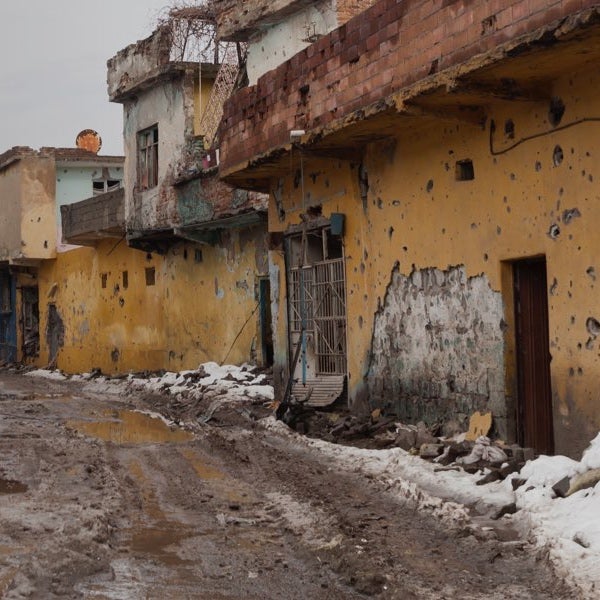While countries across the world continue to tackle the global coronavirus pandemic, the terrorism threat landscape has seen changes. Networks of various ideologies have been looking to exploit insecurities around the virus, either to enhance their organization or to spread panic by advocating terrorist attacks.
For counterterrorism practitioners surveilling the main threat actor groups, online propaganda messages have been posted by right-wing extremists (RWEs) to their followers, framing the pandemic as “divine retribution.” There are concerns that RWEs have advocated to their followers to focus attacks on state infrastructures, particularly on cities plagued by the COVID-19 pandemic. Some RWEs have incited followers to launch attacks. For example, on March 26, U.S. authorities foiled the attempted detonation of a car bomb by a white supremacist in Missouri who intended to attack a hospital. Such a conventional small-arms attack on critical facilities such as hospitals, particularly during times of a medical crisis, can overwhelm an already-stressed system.
Other RWEs have even proposed plans to use the coronavirus as a biological weapon; white supremacists have also discussed the weaponizing of COVID-19 online. According to online RWE chatter, RWEs are encouraging the deliberate spread of the COVID-19 virus. This includes the use of aerosol spray bottles to disperse infected fluids on large congregations of people.
In regard to Salafi-jihadi groups, beyond narratives of retribution against the West, they have suggested to their followers practical ideas of safety and the consolidation of their organizations in dealing with COVID-19. These ideas help to serve the Salafi-jihadi movement on two grounds. First, this is aimed at preserving their own forces, as a sick terrorism cell is an ineffective one. To avoid further attrition, operatives have to practice social distancing to ensure that the virus will not spread to other members. Second, with limited government resources, groups such as the Islamic State (IS) are capitalizing on the overstretched weak governments to grow its support base and establish training camps. Indeed, the pandemic has provided IS networks in Afghanistan and Syria with safe havens to recuperate, train, and reenergize.
Terrorism and COVID-19: Implications for Insurers
What implications do these threats have for insurers? For insurers covering conventional natural catastrophe perils, such as hurricane or earthquake, there is “clash” potential where the impacts of the pandemic exacerbate the risk. This could be as a result of difficulties with evacuations or availability of rescue and recovery teams, for example. Similar issues would occur during a more conventional terrorist attack—the potential response could be hindered due to COVID-19 safety protocols.
But, as disconcerting as the potential terrorism threat level might be in a pandemic, the reality might not be as dire. For those violent extremists that are intending to execute attacks, there is no guarantee that they have the capability to orchestrate one. When it comes to bioterrorism, there is no new indication that any group has the capacity to weaponize a biological agent effectively. Any attempt at weaponizing the coronavirus is likely to be unsophisticated and would leave terrorist cell members exposed to the virus. Even if a threat group is somehow successful in spreading the coronavirus, it would merely cause a marginal impact given the large wave of infections sweeping the world.
Any conventional attack would also be a challenge in this current environment. The expansive powers of surveillance that nation-states are implementing as a way of containing the pandemic will bolster internal security. Stricter border controls make it a challenge to cross international boundaries. Such restrictions would curb the movements of terror operatives. Curfew orders and other restrictions mean there are fewer people able to move around freely. This makes counterterrorism surveillance a much easier exercise, allowing the authorities to potentially identify would-be attackers. So long as such countermeasures are in place, more ambitious acts of terrorism are likely to be limited.
The impact of COVID-19 is widespread, and terrorist groups are not immune to its effect. Some groups have taken advantage of the chaos created due to the pandemic while others have leveraged the pandemic as a time to resuscitate their movements. But terrorist groups are also likely to experience many challenges and setbacks due to COVID-19. For insurers, as always, the threat is constantly evolving. It is clear that COVID-19 has impacted the global terrorism landscape, but it remains to be seen whether the impact is positive or negative.
An update to the RMS Probabilistic Terrorism Model will be released at the end of September, incorporating parameterization of terrorism risk for 2021. This entailed a review of terrorism activity worldwide and how the pandemic has impacted the global terrorism risk landscape. The parameterization also included a detailed examination of disrupted preparations for attacks that had occurred in the modeled countries. For more information, please review the terrorism page on rms.com.








